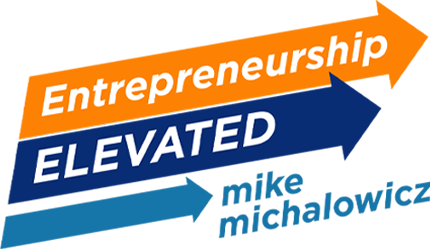One of the most important aspects of sales – whether you’re dealing with products or services – is getting in front of the decision maker. Most entrepreneurs have faced the situation of making a brilliant pitch, only to discover that all of their time and energy went into convincing the person who isn’t authorized to pull the trigger. None of us has the time to spin our wheels. When you need to make the sale, you have to get to the person in charge.
My mother always told me to ask for what I wanted, so when I faced the challenge of getting access to the decision maker, I figured that being straightforward was the best tactic. Wow, was I wrong! Decision makers are inundated with competing claims on their time and attention. They’re besieged by phone calls, emails, and even in-person visits – all of which have the same goal: to get a few minutes of time to make a pitch.
As a result, decision makers are better at saying no than you can possibly imagine. They’re masters at shutting people out and limiting access. They have to be.
Think it’s impossible to get the ear of a decision maker? It’s not, but the key to getting your foot in the door lies in taking a different approach – one rooted in patience and persistence … and leveraging the power of the decision maker’s ego.
The very best way to get in front of a decision maker is to ask for advice, and I’ll share a little success story from one of my businesses – the moment that I cracked the code and figured out a way to get inside, nearly every time.
I used to run a business that offered computer forensic services. As I was building and growing my business, there was one company whose business I was dying to land. I’d tried everything – pitches to folks who had the ear of the decision maker, direct appeals with guarantees of my results … nothing worked. I was completely shut out.
This company was big and very successful, and they had a fair bit of employee turnover and had to deal with theft of intellectual property from time to time, so they had a real need for the sort of forensic services I offered. I knew that we were a perfect fit, but the problem was that the company handled its IP troubles in house. I could do a better job, but I couldn’t get to the head honcho to convince him.
Until it hit me: these decision makers are courted by everyone, all day, every day. They have good-sized egos as a result, and if I could find a way to use that ego – in a way that’s honest and ethical, of course – I might be able to find an in.
So I wrote a letter to the guy in charge, and I didn’t ask for a meeting to make a sales pitch – in fact, I promised NOT to make a sales pitch. Instead, I asked for his advice. I asked him to become my mentor. I explained to him that he was my ideal customer, and I wanted his valuable advice on ways in which I could elevate my level of service in order to attract companies like his. I asked for fifteen minutes of his time, and I reiterated that I wouldn’t be making a sales pitch.
He agreed. I was in.
I had my brief meeting. I asked questions and listened carefully to the advice he offered. I made notes on all of the things he wanted in an ideal vendor, and when the meeting was over, I got to work implementing the strategies he’d recommended. When I’d made the improvements he’d recommended, I asked for a second meeting – again making the promise not to try to sell him anything. We reviewed the changes I’d made, and he offered more advice about how to refine my company’s services even further.
Again, I took the advice back to the office and got to work. When the third meeting rolled around, I showed him the changes I’d made, and I could see the pride he felt in my achievements. He felt invested in my success, and he wanted to see my company flourish. He looked at me over his desk and said the magic words: “I want to be your customer.”
What had happened was that my dream client had given me advice on how to sell him – all without realizing it. By asking for advice, rather than his business, I’d earned myself a valuable mentor, and I’d gotten exactly what I’d wanted – the sale. I’d gotten the sale because I’d earned it by applying the advice I’d solicited.
Here’s the deal with this technique – it’s not a trick. When you ask a decision maker for advice, you have to keep your word about not trying to make the sale in your meeting, and you also have to be willing to implement the advice you receive.
This technique requires dedication and patience, but it’s amazingly effective. It doesn’t work every single time – sometimes decision makers aren’t eager to spend their time doling out advice. But when I get that first meeting, odds are good that I’ll be closing a deal in the future.











Awesome story! Do you have any suggestions on how I should approach this situation? I worked for a Dow Chemical company a few years ago and showed a supervisor how to save $25,000 a year. Which (as you know) translates into a cool $250,000 in 10 years. He did not seem all that interested. I got a new job the next week and I do not know if the idea was implemented. I have sent letters and tweeted them asking if they want me to show them the idea and am not hearing anything back. I would like to take a commission from sharing the idea with them. How would you continue on if you were me? Thanks!
Jack -I think it is extremely unlikely that you’ll ever receive a commission or percentage of the idea you shared. I believe that as an employee of the company, any ideas and knowledge you provided them is technically their property, and nothing is due to you financially. It is absolutely a question for a business or employment lawyer.
But I wonder if you could take this concept and approach similar companies or corporations that could benefit from it, and you provide a Consulting Service to implement it.
Thanks Mike. Great answer and suggestion. I hadn’t thought about that whole thing of being an employee and everything you bring to them ends up being theirs! Yikes. Even though I was a temp, I imagine the same holds true. I’ll ponder on it and figure out my next steps.
I hear ya… it kinda stinks. But that is typically the scenario. Wishing you tremendous success in all you do (and maybe it will spawn a great entrepreneurial endeavor for you). Happy New Year!
I LOVE this method because it is authentic and ethical. Wondering, though, if there’s a way to offer some kind of return of value up front to the decision-maker for them kindly giving you free advice? Or would that change the nature of the request or kill the effect somehow?
While asking for advice instead of trying to get a piece of them to make a pitch is definitely different that what they usually get, I guess I’m asking if there’s a way to make it seem like a benefit to them in addition to stroking their ego?
Thanks for sharing your experiences! You KNOW I appreciate you a ton! 🙂
I am trying to get in front a potential client. I have e mailed this client, trying to connect via Linkin and no response. I don’t think I am being a push or am I. So I decided to no only reach out via Phone, E mail, Linkin but to take a trip to the corporate office to pay a personal visit. What do you think?